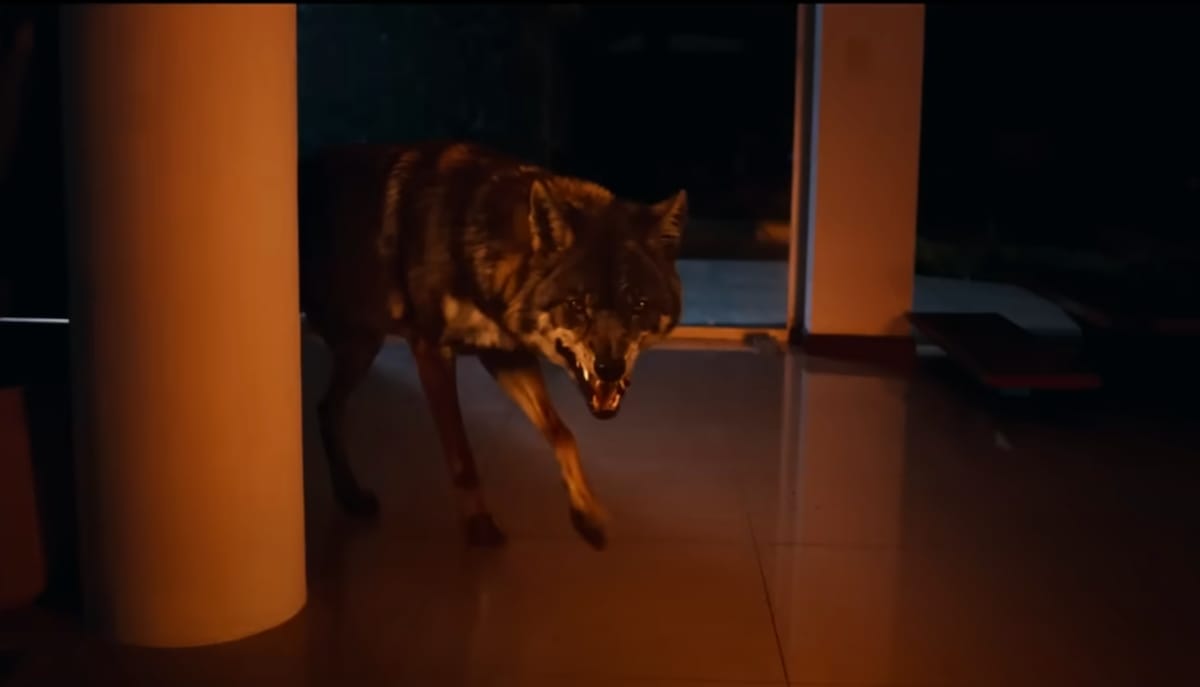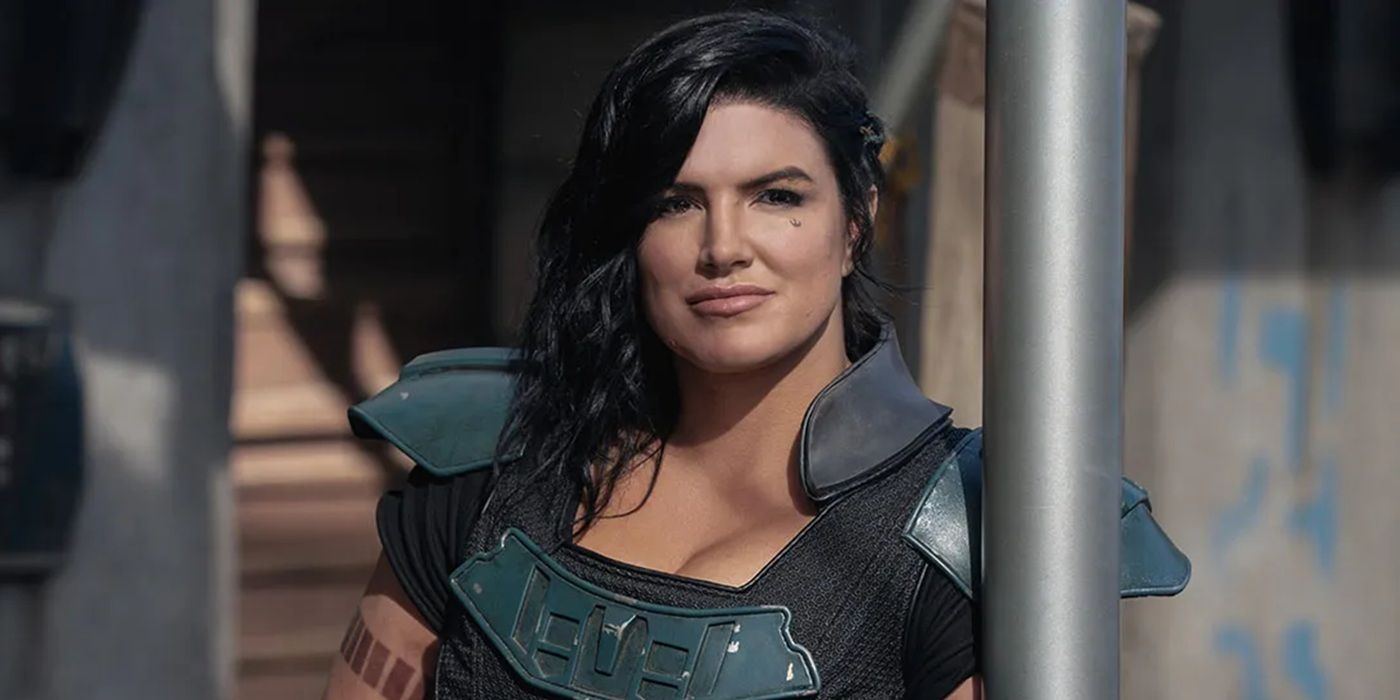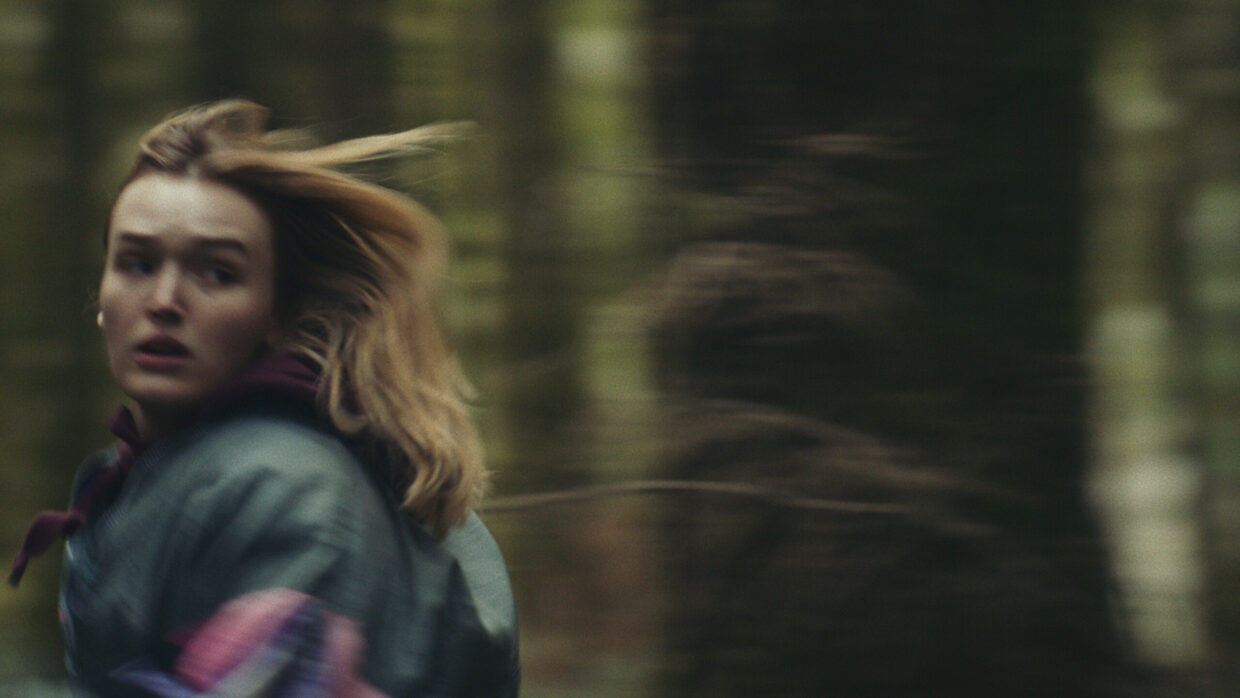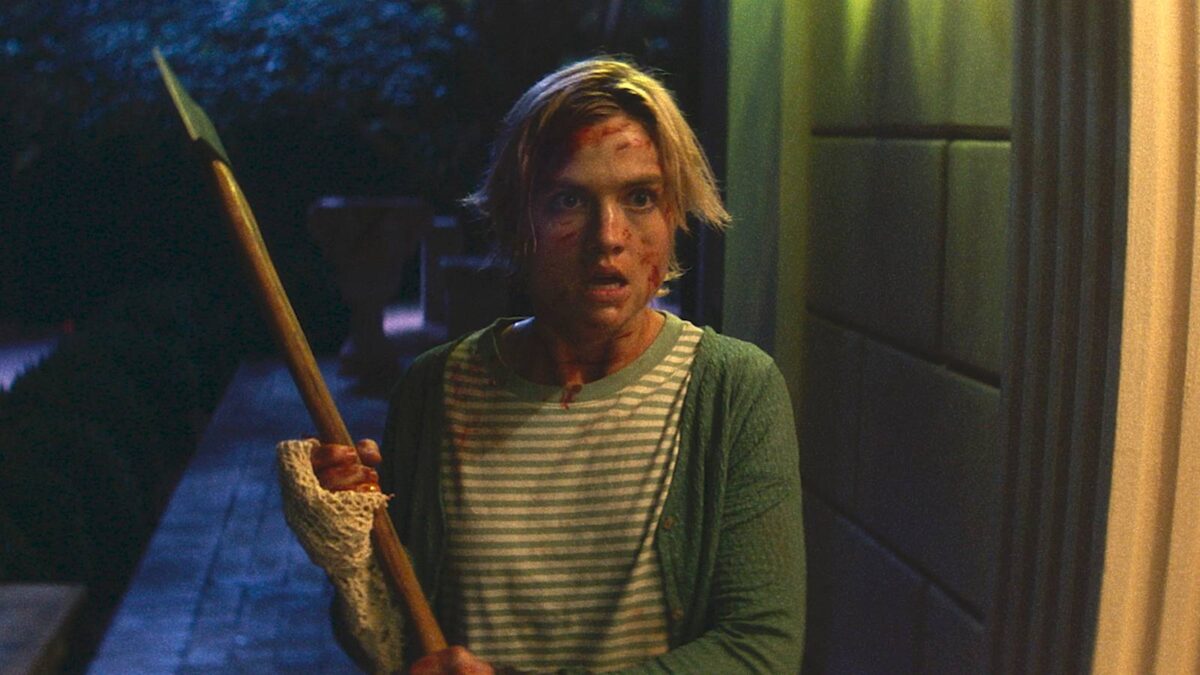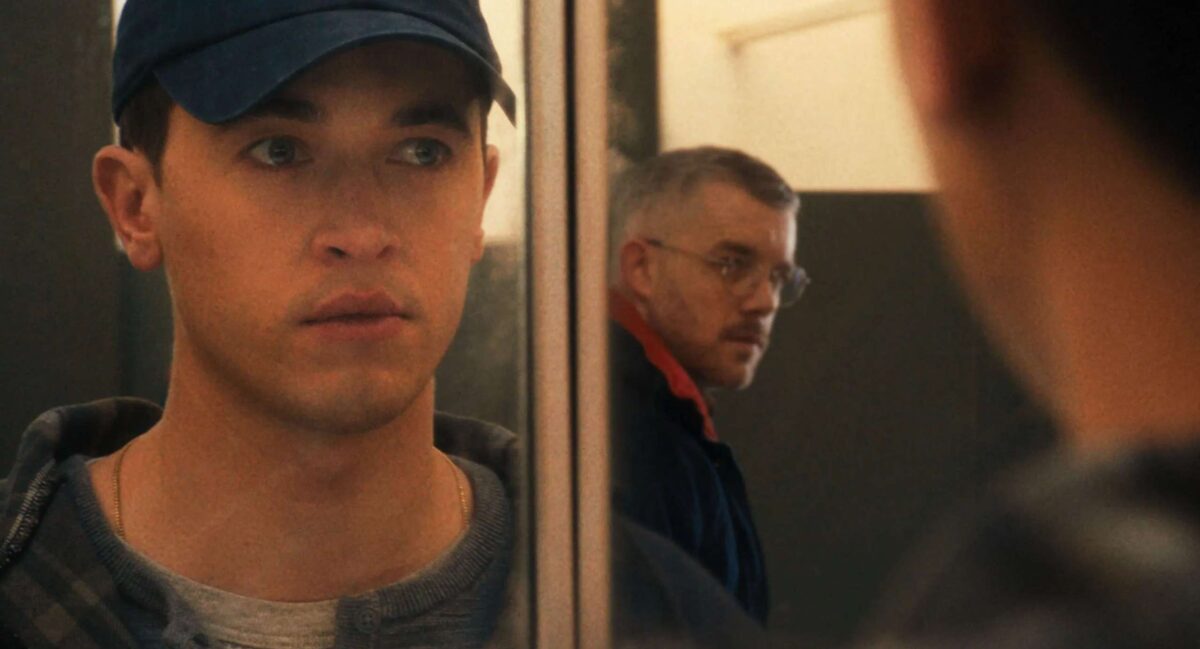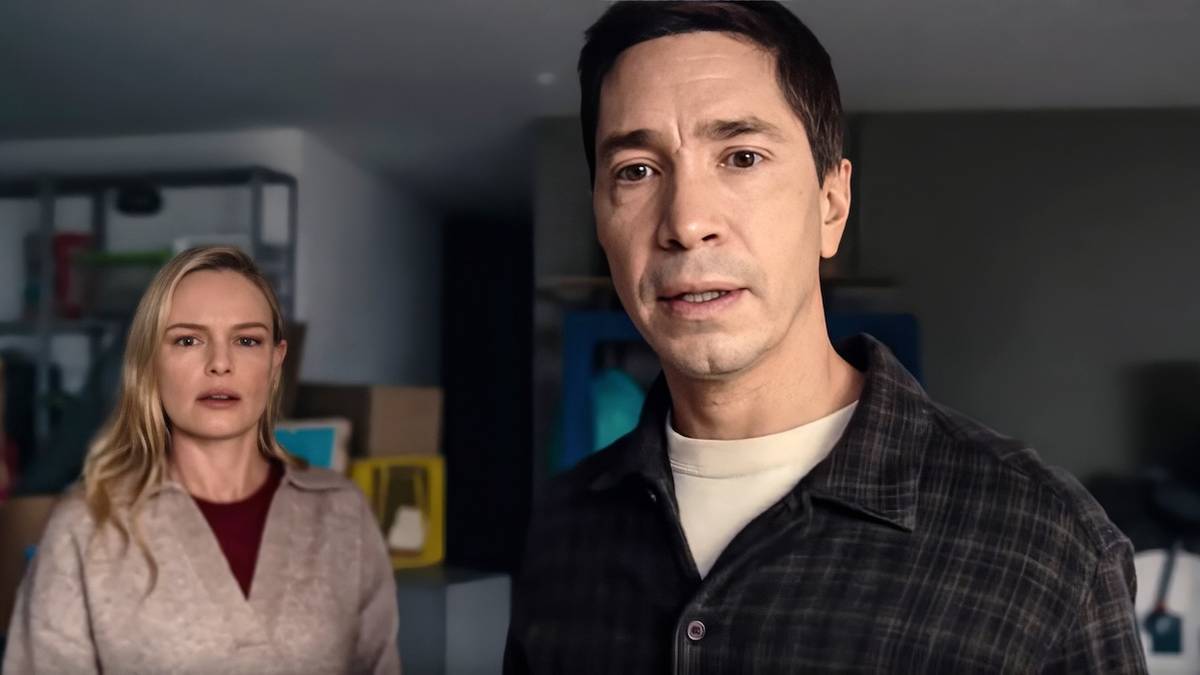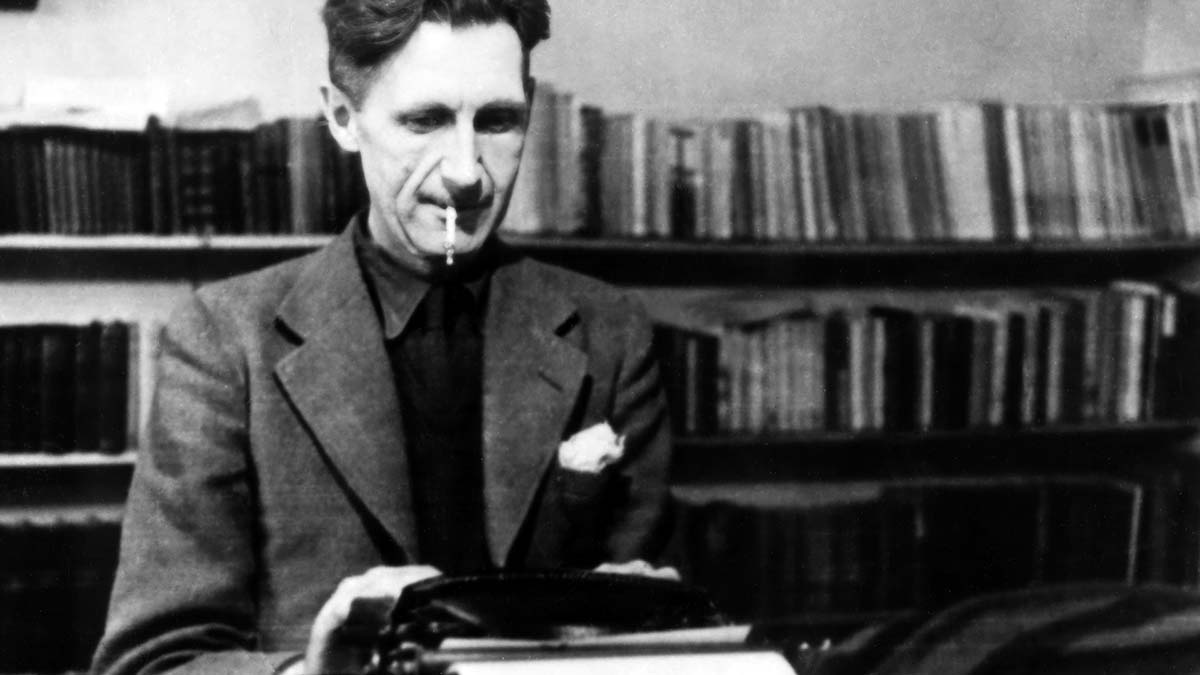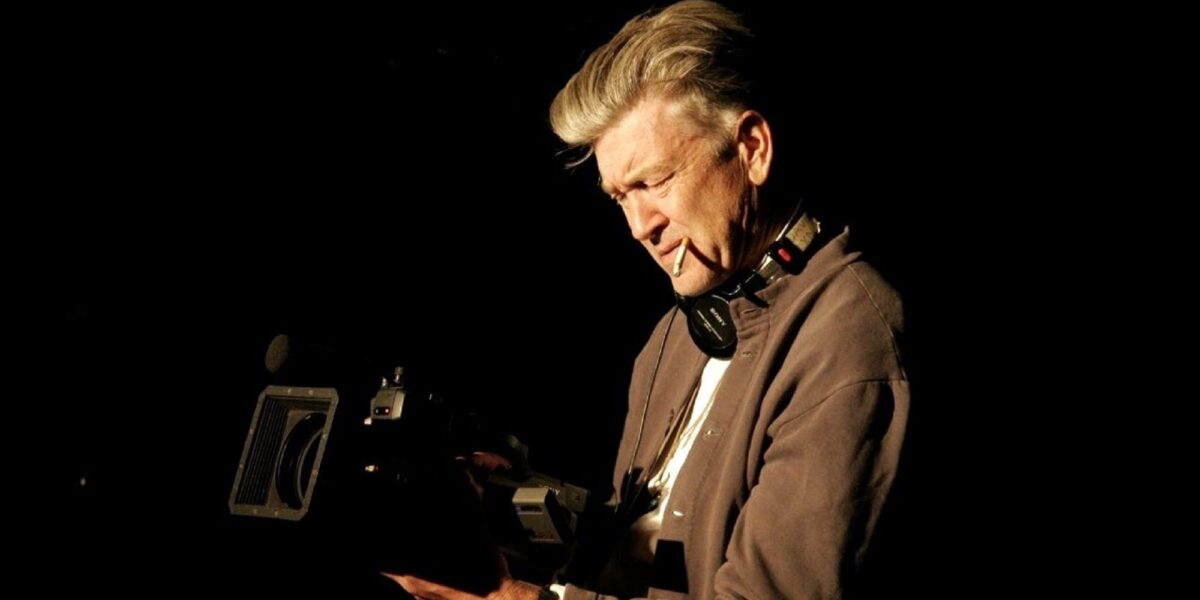
David Lynch’s Cinematographers Explain the Real Meaning Behind That Mysterious Word
Jun 28, 2025
When it comes to turning a director’s vision into physical reality, you’d be hard-pressed to find someone more directly connected to that than the cinematographer. Also known as the director of photography, these creatives are the ones behind the camera and often work closest with the director while filming in order to ensure that the story on the screen matches the story in the director’s mind. There are few directors with a more distinctive style than the late David Lynch, whose films and television shows were so distinctive that the word “Lynchian” is often used to directly describe Lynch’s unique storytelling style. That surreal, dream-like bizarreness that emulates through so much of David Lynch’s work wouldn’t be possible without the people working on the set, which not only includes cinematographers, but also the actors themselves, costuming, makeup, the lighting and sound crew, and the editors. But we sat down with two of Lynch’s frequent collaborators Fred Elmes and Peter Deming at the International Global Series Festival (IGSF) and discussed what made working with Lynch so unique. Elmes, who attended the American Film Institute with Lynch early on in his career, was cinematographer for classic films like Eraserhead and Blue Velvet, while Deming worked with Lynch for Mulholland Drive, Lost Highway, and Twin Peaks: The Return. These creatives discuss what they think sets Lynch apart from the rest, memories of working with Lynch of his most significant projects, and what they consider the word “Lynchian” to mean to them.
What Sets David Lynch Apart From the Other Directors in the Industry?
“But he’s a director who sets a mood on set that you pick up cues from because he knows the grand arc of the project more than anyone.”
Image via New Line Cinema
COLLIDER: Both of you have worked with some magnificent directors in your time. What about working with David Lynch set him apart from the rest, and what was the greatest impact or lesson that you got from working with him that you carried on into future projects? PETER DEMING: For me, since when I started working with David, he obviously had already become this icon, and there was a body of work that I was able to absorb. So, there was a complete trust in whatever he wanted to do, whether I totally understood it or not. Those decisions were always, to me, born out to be correct once I saw the finished product. There’s a lot of considering and thinking along the way. It’s like, “What are we going for here? What is it exactly?” But he’s a director who sets a mood on set that you pick up cues from because he knows the grand arc of the project more than anyone. So, I learned to just give in to that, and just react and create based on that. FRED ELMES: For me, starting with David in the early days of the American Film Institute, I had only a couple of his short films to look at and his paintings, and I think that it was really his paintings and drawings that were the cue for me to what he wanted to do. Though they didn’t move, for the most part — they were versions of stills — he wanted to take this still painting idea and add motion to it, so that was part of the challenge. It’s interesting because David didn’t really articulate what he wanted, but he always knew it when you showed it to him. So, he could look through the camera and look at the lighting that you created and say, “Yes, this is the right thing. This is the direction. Just make it darker, still, and it’ll be perfect.” And so I learned from that kind of experience on Eraserhead, and brought that to the next films we did together. This was a different process than with other directors I’d worked with. David was so specific about the way things looked and felt, and he was so interested in what the actors were doing and how they did it, that those rehearsals were really, really important and drove the way a scene worked in every case.
Fred Elmes Remembers What It Was Like To See David Lynch Evolve in His Career
“I truly miss him as a friend, as someone that I’ve known for so many years, and who was not there to return my phone call anymore.”
Image via Duck Diver Films
Fred, you mentioned the American Film Institute, and that’s how you guys first met and got started. What was it like seeing David evolve throughout the years and seeing that process of his being refined, and what will you miss the most about working with him, not only as an auteur, but as a creative partner and a friend? ELMES: Growing up as a filmmaker with David through the American Film Institute and into other movies was wonderful because we would come and go from each other. We would work on a film and then go away and do our own thing, and then come back together a film later. And to see that development of his style and his resolve to do it his way was just fabulous. It was really wonderful to watch a director become increasingly sure-handed about everything that he did. I truly miss him as a friend, as someone that I’ve known for so many years, and who was not there to return my phone call anymore. That’s hard.
Related
What Does “Lynchian” Mean Anyways?
It’s easy to feel yet hard to nail down a true definition, but that’s fitting for Lynch.
How Did Peter Deming React To Getting the Call About Working on ‘Twin Peaks: The Return’?
“Any time David calls you and asks you to do something, it’s a happy day.”
Image via Showtime
Peter, having worked with David on Twin Peaks: The Return, what did it mean for you to get that call to work on that project with him? Twin Peaks is such a pillar of his work. DEMING: Well, any time David calls you and asks you to do something, it’s a happy day. I was actually on a project in London, and David was in Paris doing a bunch of lithographs there; he had a place there that he liked to work. I got a call from his office that said, “David would like to talk to you. He’s in Paris.” I said, “Well, I’m in London. Why don’t I just go see him?” So, I took the train to Paris and he laid out the whole thing to me, face to face, which was pretty exciting. I had, really, no idea this was coming. There were no whispers of it prior to that. I think two days later is when the announcement came out that this was happening. It was exciting because it was an iconic show that I grew up with, that I experienced as a “consumer,” I guess you would say, as a viewer. Now, I got to be a part of it. And the show, as you know, is both old and new. It’s old characters and new characters, and so you have a legacy to continue in part of it, and then part of it is your own creation. It was fantastic. I don’t know what else to say.
What Does the Word “Lynchian” Mean to Peter Deming and Fred Elmes?
“I didn’t want to be false about it.”
Image via Paramount Pictures
Working with David Lynch and his legacy, he’s become such a big part of the film lexicon. “Lynchian” is a word that we use to describe films that he doesn’t even make, we use to describe this kind of vibe and this mood. What does it mean for each of you when you hear that word, “Lynchian,” and how does knowing that that’s the expectation affect how you do your work technically? DEMING: When I hear that word used in something we’ve worked on, I know that we’ve done our jobs. A lot of that, obviously, most of it, is David, but we’re also contributing to that look and feel and that aesthetic that is subscribed to “Lynchian.” To me, it’s ironic that a lot of the things that are described as Lynchian are actually quite normal in a lighting way or in a character way. It’s what those people are saying and doing and the way that David directs them that makes it “Lynchian,” I think. So, I was very conscious of not pasting some sort of style on it that it wasn’t giving me in return, it wasn’t asking me to create. I didn’t want to be false about it. ELMES: Yes. I think, also, the term Lynchian is a little bit of a trap because it comes with this global picture of what a movie is or what a frame looks like, but really, it’s David’s ideas that make it work. That’s what makes his films unique. The specifics of what the actors say and the writing are the main drivers of that. I think the term Lynchian kind of latches onto some of these cool things that David has created along the way.
What Was It Like Working Through Conflicts on David Lynch’s Set?
“One of David’s great gifts was to make you feel at ease…”
Image via Universal Studios
Having worked on these projects and David’s process, what do you think was the most challenging part for you when it came to any of these projects? What do you remember as, like, “That was a day of hell,” or “I really struggled that day,” and how did you guys move forward from it? ELMES: Filmmaking isn’t easy, and on David’s films, I think we’d have to agree that you work particularly hard. It really is because you so want to please him. You so want to make it just right and just exactly what he asked for, plus something. I guess that was a testament to his ability to convince us all to come on board with his vision of things and bring that extra stuff that we have to make it just a little bit different, a little bit better, a little more imaginative than in other situations. So, I think it’s that sort of charisma that David had that really drew me in to want to make it special. DEMING: One of David’s great gifts was to make you feel at ease, make you feel comfortable. You meet him, and 20 minutes later, you feel like you’ve known him for 10 years. He’s that type of person. Before I met him and worked with him, he was just on a pedestal — and not that he wasn’t throughout the time that I knew him, but once you start working with him, then he just becomes David, and you don’t even think about that anymore. The same was true on set. If you’re doing something and it’s not going exactly how he wants it, it’s a very subtle push to get you to go here, there. It’s never aggressive. There’s never anger in any of it. It’s always “we.” “How can we push it this way and that way?” Fortunately, that didn’t happen that often, but it happens enough where, when it becomes a discussion, then you sort of follow along to where he wants that road to go.
How Do Peter Deming and Fred Elmes View the Changing Landscape of Film and Television?
“You have to keep that grand vision in your mind of the theatrical experience and bring that into the television sphere…”
Image via Libra Films International
When I think of film and I think of the changing landscape, both of you do film, and you also do television directing, and the screens are getting smaller. People aren’t really going to theaters. As a cinematographer, what do you hope for the newer generation of casual viewers? Should they be going only to theaters to see movies, or is it okay to watch some movies that you made in IMAX on your phone screen? What is your perspective when it comes to thinking about that, and seeing how this landscape is changing? DEMING: When you say TV now, the landscape has changed. The stories are more aggressive. They’re more challenging. It’s drawing really top talent out of movies into television. But I think you’re right; you have to keep that grand vision in your mind of the theatrical experience and bring that into the television sphere, because whether they know it or not, I think that’s what people are reacting to. The original Mulholland Drive was a pilot for television, and when we started that, there was never a discussion of, “How do we shoot television?” We would just shoot it as if it were a movie, because that’s really what we understood. To alter that to accommodate a format wasn’t even discussed. It wasn’t even a reality. I think that people should definitely keep that theatrical in their heads. Before I start a project, one of the few days before we start shooting, I try to go to the cinema and see something, and remind myself what that experience is, and then take that into shooting. ELMES: I think what Peter said is true. We’re all making movies. We all make stories that we hope will be seen on the big screen, and I think that that’s the goal. You have to keep that in mind. If someone wants to watch it on their iPhone, they will have a different experience, but they’re going to do it no matter what I do. By having that vision with the director, you really open a whole world of the way of film plays. I’m really very enthusiastic about theaters that are opening up now — the Metrograph in New York City, for instance, that shows prints of films, but shows them on a big screen. I see audiences who are 25 and 35 years old loving the experience of sitting in a theater and watching a movie together. So, I think there’ll be more of that. Twin Peaks is available to stream on Paramount+ in the U.S.
Twin Peaks
Release Date
1990 – 1990
Network
Showtime, ABC
Writers
David Lynch
Publisher: Source link
Erotic Horror Is Long On Innuendo, Short On Climax As It Fails To Deliver On A Promising Premise
Picture this: you splurge on a stunning estate on AirBnB for a romantic weekend with your long-time partner, only for another couple to show up having done the same, on a different app. With the hosts not responding to messages…
Oct 8, 2025
Desire, Duty, and Deception Collide
Carmen Emmi’s Plainclothes is an evocative, bruising romantic thriller that takes place in the shadowy underbelly of 1990s New York, where personal identity collides with institutional control. More than just a story about police work, the film is a taut…
Oct 8, 2025
Real-Life Couple Justin Long and Kate Bosworth Have Tons of Fun in a Creature Feature That Plays It Too Safe
In 2022, Justin Long and Kate Bosworth teamed up for the horror comedy House of Darkness. A year later, the actors got married and are now parents, so it's fun to see them working together again for another outing in…
Oct 6, 2025
Raoul Peck’s Everything Bagel Documentary Puts Too Much In the Author’s Mouth [TIFF]
Everyone has their own George Orwell and tends to think everyone else gets him wrong. As such, making a sprawling quasi-biographical documentary like “Orwell: 2+2=5” is a brave effort bound to exasperate people across the political spectrum. Even so, Raoul…
Oct 6, 2025


